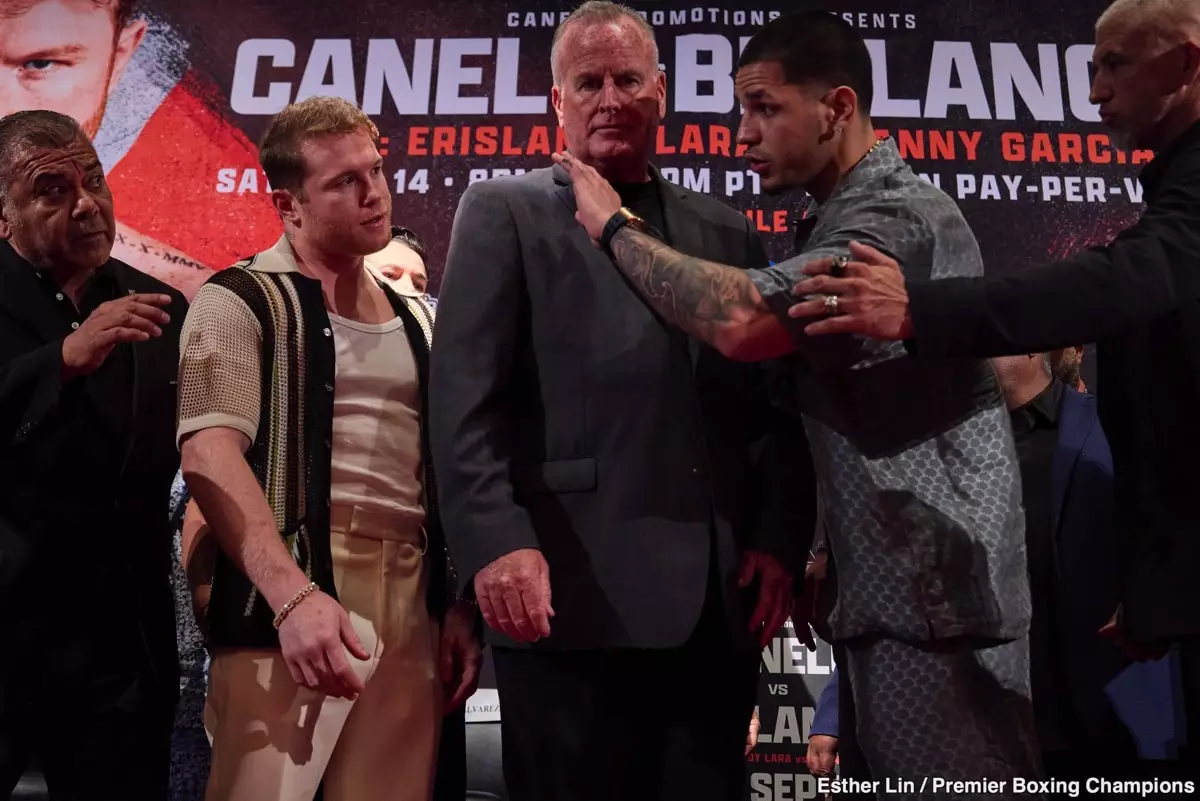Promoter Oscar De La Hoya recently took a verbal jab at Edgar Berlanga, questioning his claims about having Puerto Rico behind him in his upcoming clash against Canelo Alvarez on September 14th. Berlanga, who hails from New York, has been heavily emphasizing the Mexico vs. Puerto Rico angle in the lead-up to the fight. De La Hoya, however, pointed out that Berlanga’s heritage lies in Puerto Rico but he is not actually from there. He even went as far as to say that he, De La Hoya, who lived in Puerto Rico for six years, might be more Puerto Rican than Berlanga himself. This criticism raises important questions about the authenticity of Berlanga’s promotional tactics for the fight.
De La Hoya’s critique suggests that Berlanga may be overplaying his Puerto Rican heritage to drum up interest in his fight against Canelo. By invoking the Mexico vs. Puerto Rico rivalry, Berlanga runs the risk of coming across as inauthentic and disingenuous, especially given that he is not actually from Puerto Rico. De La Hoya’s remarks highlight the importance of sincerity in promotional efforts and caution against using cultural affiliations as mere gimmicks to attract attention. Berlanga’s insistence on positioning himself as representing Puerto Rico in the fight raises ethical concerns about the manipulation of national identities for personal gain.
De La Hoya also criticized Canelo Alvarez’s choice of opponent in Berlanga for the September 14th bout, suggesting that it may not draw the desired level of interest. According to De La Hoya, Berlanga lacks widespread popularity beyond Brooklyn, New York, which could hurt the promotion of the fight, especially considering the competition from a UFC event on the same night. De La Hoya implied that a more recognizable and formidable opponent, such as David Benavidez, would have been a better match-up to compete with the UFC event. The critique underscores the strategic importance of selecting opponents with established fan bases and marketability in high-stakes boxing events.
De La Hoya’s comments serve as a reminder of the complexities involved in promoting boxing matches and the pitfalls of relying on heritage-based narratives for promotional purposes. Berlanga’s promotional approach could benefit from a more nuanced and authentic engagement with his own background and identity, rather than borrowing from nationalistic rivalries for hype. Furthermore, the critique of opponent selection highlights the need for careful consideration of market dynamics and competition when scheduling high-profile fights. Moving forward, Berlanga and his team may need to reevaluate their promotional strategy and event planning to ensure maximum impact and audience engagement.

